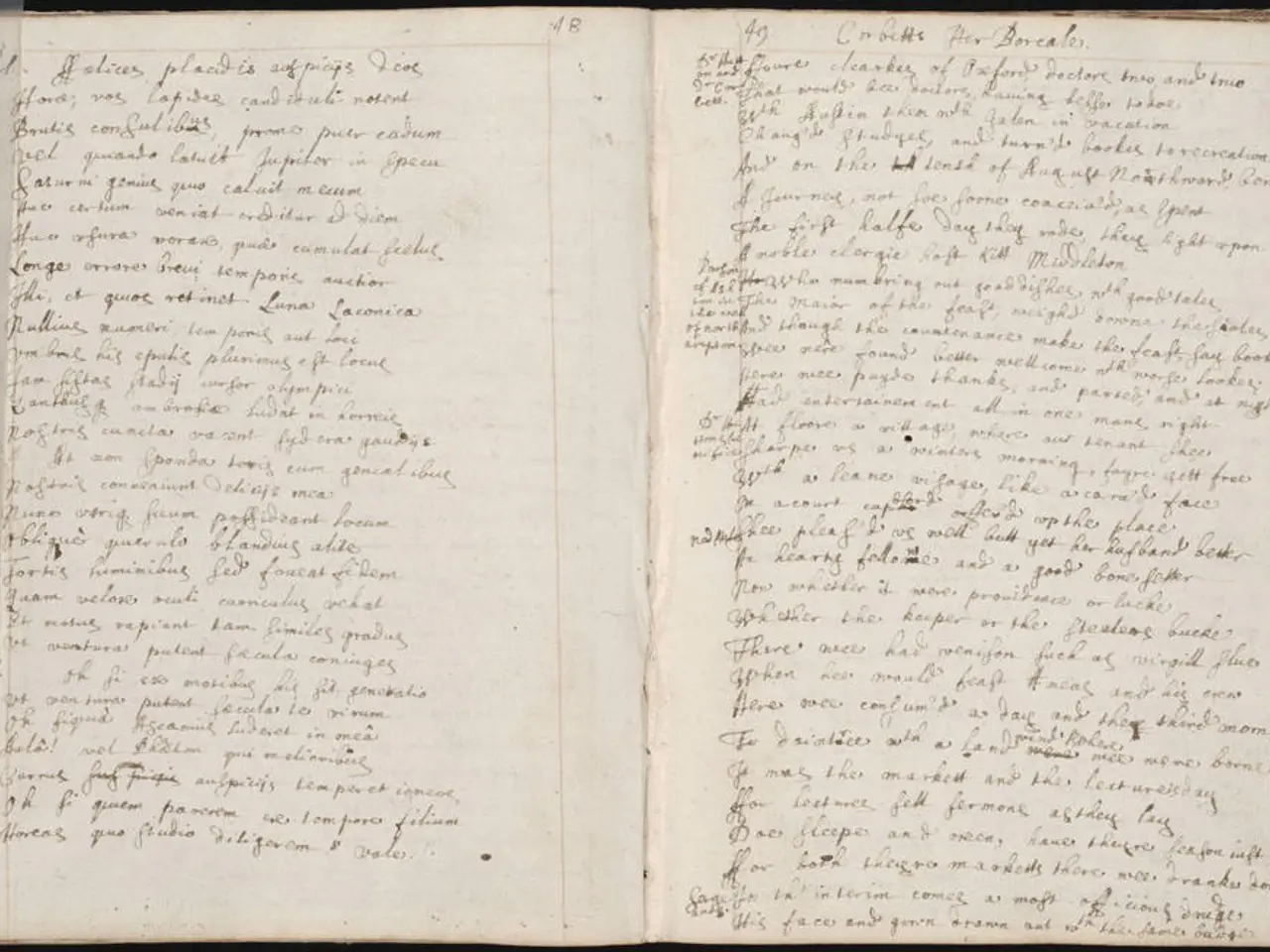"Unveiling insights from the latest book "But": Max Goldt's argument against universal marriage"
Max Goldt, a renowned German author and satirist, has published a new book titled "But?" after a decade of absence. The book, published by dtv Verlag for 24 euros and containing 158 pages, is causing a stir with its humorous yet critical take on contemporary issues.
In "But?", Goldt approaches topics such as women's football, the Islamization of the West, gender-neutral language, and the question of whether public broadcasters lie with his trademark wit and irony. One of the book's dramatic sketches features a young father taking a trip to the future with "Fjutscherinchen" and seeing mosques everywhere, with the future fairy explaining they will no longer be used as places of worship due to a genetic defect affecting all Muslims.
Goldt's criticism is presented in a concise and humorous manner, often with detours into the absurd. For instance, in one sketch, a televised ceremony for the "Word of the Year" has the host announce the word "woman", causing bewilderment and a heart attack in an elderly journalist.
The book's title refers to a conversation between a "bourgeois" and a "lad" from the working class, with the "lad" asking "But?" in response to the "bourgeois" expressing openness and respect towards others. Goldt's views might still be considered controversial, particularly in certain circles, as his defense of Morrissey in the text "Morrissey vs. Der Spiegel" suggests. In this work, Goldt implicitly defends Morrissey, who was accused of supporting Brexit and defending Harvey Weinstein, stating that anyone who has ever expressed affection might be accused of sexual harassment.
Max Goldt's book contains humor that skates dangerously close to scandal, with the intention of observing closely but remaining innocent. His criticism of linguistic impurities in daily journalism, particularly in the reporting of unpleasant numbers like drug deaths or sexual crimes, has caused controversy at discussion events, such as in the "new federal states", where several "straight sons" in the audience protested the constant reference to them as "whore sons".
While Goldt expresses his opposition to same-sex marriage and women's football in the book, he also shows appreciation for young people who participate in these activities. His views on LGBTQ+ rights and public broadcasting remain less clear, as the book does not provide a comprehensive exploration of these topics.
For detailed and specific views from the new book "But?", the best source would be the book itself or interviews/reviews directly discussing its content. Goldt uses shock moments in his writing to unnerve contemporary readers who are overly concerned about what they should say and think, making "But?" a thought-provoking and engaging read.
Read also:
- Urban Tales: Winged Hedgehogs and Gridiron Mascots Highlight Our Legendary Series on TGC+!
- Love, Work, and Friendship Harmonies between Aries Signs
- Citizens advocate for a public assembly, demanding a new legislative body
- Jenna Ortega mastered Bach's cello suites for the popular Netflix program, 'Wednesday'








